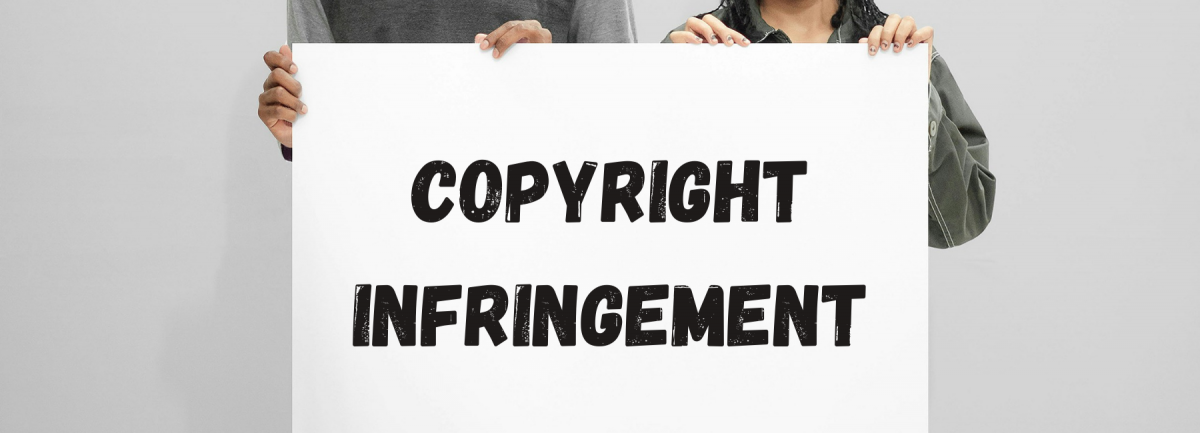A high-stakes lawsuit reveals the complex intersection of social media fame, copyright law, and unauthorized commercial use
In a case that highlights the evolving challenges of intellectual property in the digital age, FJerry LLC—the company behind the wildly popular “DudeWithSign” social media phenomenon—has filed a federal lawsuit against Cookie Enterprises, Inc. for allegedly copying their copyrighted image and using it without permission in a commercial marketing campaign.
The Players and the Stakes
FJerry LLC operates a social media empire that includes the massively successful FUCKJERRY account (17 million followers) and the DudeWithSign account (8 million followers), among others. The DudeWithSign account features Seth Phillips, known as “the dude with a sign,” who holds cardboard signs with humorous observations about everyday annoyances throughout New York City. His relatable content has garnered millions of impressions and caught attention from major brands and even the White House.
The lawsuit, filed August 19, 2025, in the Southern District of New York, centers on a specific copyrighted image from November 24, 2019, which Cookie Enterprises allegedly copied for use in their email marketing campaign to promote cookie products.
What Makes This Case Particularly Interesting
The Triple-Threat Legal Strategy: This isn’t just a copyright case. FJerry has crafted a comprehensive legal attack with three distinct claims:
- Federal copyright infringement (17 U.S.C. § 501)
- Right of publicity violation under New York Civil Rights Law § 51
- False endorsement under the Lanham Act (15 U.S.C. § 1125(a))
This multi-pronged approach demonstrates the sophisticated legal thinking behind protecting social media intellectual property in 2025.
The Meme-to-Money Pipeline: The case illustrates how internet culture has become big business. FJerry’s complaint emphasizes that Phillips is “highly sought after by companies hoping to secure his endorsement” and that licensing agreements have “generated substantial revenue.” This represents a maturation of the influencer economy where meme creators are treated as serious commercial entities with valuable IP portfolios.
The White House Connection: The complaint notably mentions a viral post featuring Phillips alongside President Joe Biden promoting COVID vaccinations, underscoring the mainstream cultural relevance of the DudeWithSign persona and potentially strengthening their right of publicity claims.
Strengths of FJerry’s Case
Solid Copyright Foundation: FJerry holds a valid U.S. Copyright Registration (No. VA 2-319-345) issued September 6, 2022, with an effective registration date. This provides a strong legal foundation and enables them to seek statutory damages up to $150,000 per infringement (the high end for willful infringement), plus attorney’s fees.
Clear Commercial Harm: The complaint effectively argues that Cookie Enterprises’ unauthorized use (for LAST CRUMB) directly competes with FJerry’s licensing business model. By using Phillips’ image to promote cookies without permission, the defendant allegedly undermined FJerry’s ability to selectively control endorsements and maintain the value of their brand.
Documented Popularity and Recognition: The extensive follower counts, media coverage (Forbes, Men’s Journal, Yahoo!, US Weekly), and mainstream recognition provide strong evidence of the commercial value and distinctiveness of the DudeWithSign brand.
Multiple Revenue Streams at Risk: Beyond direct licensing, the case demonstrates how unauthorized use can damage multiple income sources such as social media influence, selective endorsements, and brand partnerships with major companies like Anheuser-Busch and Warner Bros.
Potential Weaknesses and Challenges
The Fair Use Wild Card: Cookie Enterprises will likely argue fair use, particularly if their use was transformative, parodic, or minimal. The strength of this defense will depend heavily on the specifics of how they used the image, which aren’t fully detailed in the complaint.
Right of Publicity Complexities: New York’s right of publicity law requires that the use be “for advertising or trade purposes.” If Cookie Enterprises can characterize their use differently or argue that it falls under protected speech, this claim could face challenges. Defendants commonly attempt to use the First Amendment as a shield to these types of claims.
False Endorsement Burden: The Lanham Act claim requires proving the likelihood of consumer confusion about endorsement. Cookie Enterprises may argue that reasonable consumers wouldn’t believe a cookie company was actually endorsed by a social media comedian, making this the potentially weakest of the three claims.
What to Watch For
As this case progresses, key factors to monitor include:
- How the court handles the intersection of meme culture and traditional copyright principles;
- Whether Cookie Enterprises mounts a fair use defense and how strong it proves to be;
- The extent to which FJerry can prove actual damages and lost licensing opportunities; and
- How the right of publicity and false endorsement claims fare compared to the copyright claim.
The outcome will likely provide important guidance for both content creators seeking to protect their work and companies looking to use popular internet content in their marketing efforts.
This case serves as a reminder that in today’s digital economy, what might appear to be casual internet content can actually represent sophisticated business ventures with substantial legal protections. For both creators and companies, understanding these evolving legal boundaries isn’t just advisable—it’s essential.

